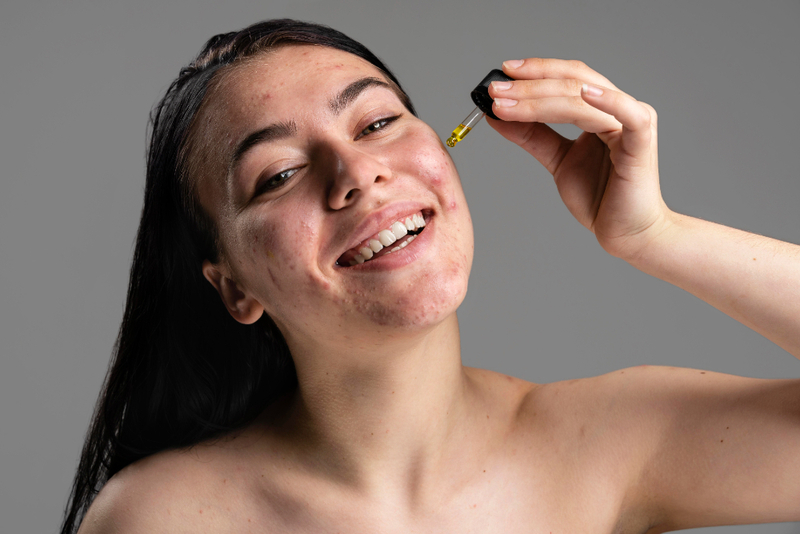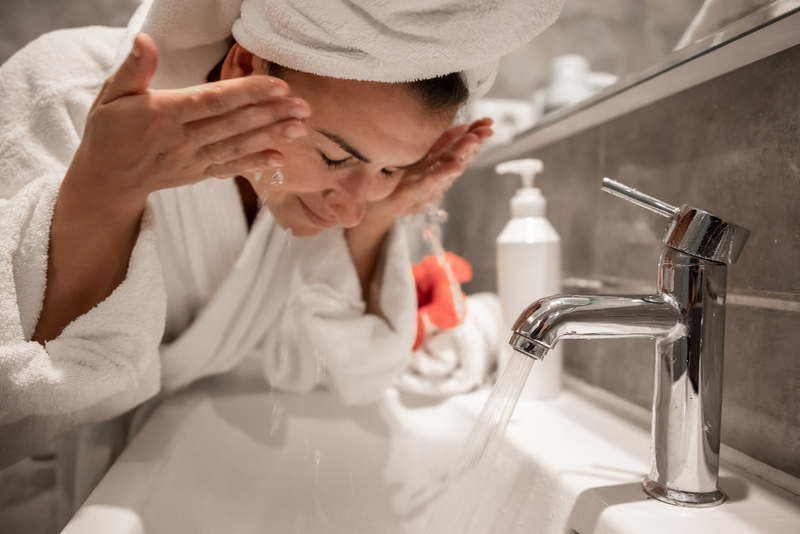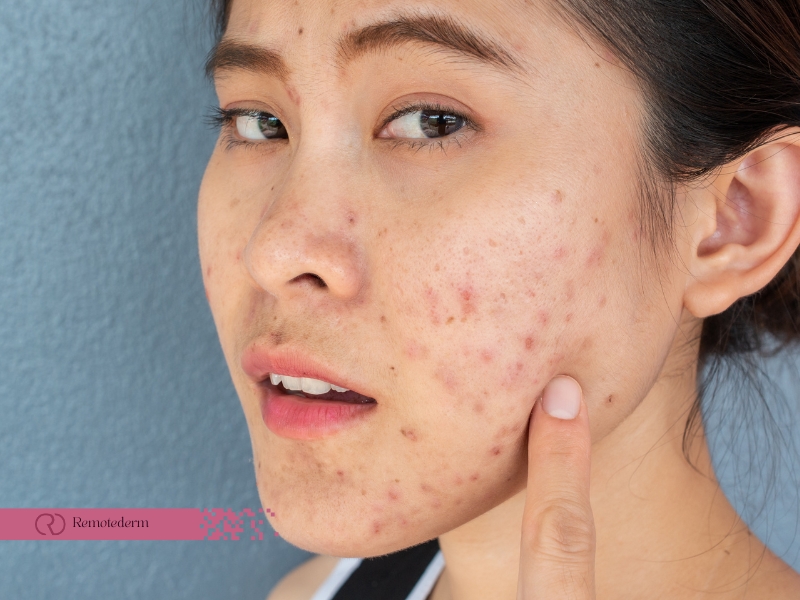Unraveling the complexities of adult acne, this guide explores its causes, treatments, and preventive measures. From hormonal fluctuations to stress triggers and dietary influences, we uncover the roots of adult acne. Discover effective treatment modalities, lifestyle adjustments, and skincare practices to manage outbreaks and prevent scarring. Empower yourself with expert advice and research-backed insights to navigate the world of adult acne effectively.
What Causes Adult Acne?
The occurrence of adult acne, or acne adulte, is not random; it’s the result of a combination of several contributing factors. These can range from hormonal fluctuations and stress to dietary habits:
- Hormonal Changes: Acne outbreaks can be brought on by changes in hormones, especially those involving androgens. Due to hormonal changes during these times, women may experience flare-ups of acne during their menstrual cycle, pregnancy, or menopause.
- Stress: Excessive stress can make acne worse. Stress causes the body to release cortisol, a hormone that can cause acne by increasing the amount of oil produced in the skin.
- Diet: Some foods, particularly those heavy in dairy and sugar, may aggravate acne. Studies indicate a connection between skin health and diet, with dairy products and high-glycemic diets aggravating acne.
How to Treat Adult Acne
Treating adult acne involves a combination of over-the-counter products, prescription medications, and lifestyle modifications:
- Topical Treatments: Benzoyl peroxide or salicylic acid-containing over-the-counter medications can help lessen acne. These components function by decreasing inflammation and clearing clogged pores.
- Prescription Drugs: Dermatologists may recommend harsher topical treatments or oral drugs for patients with severe or chronic acne. These acne prescriptions could include retinoids, antibiotics, or, in certain situations, hormonal drugs like spironolactone or oral contraceptives.
- Lifestyle Modifications: In addition to medical therapies, a healthy lifestyle can help manage acne. This entails keeping up a healthy diet, working exercise frequently, getting enough sleep, and adhering to a regular skincare regimen.

How to Prevent Adult Acne
Preventing adult acne involves a combination of good skin care practices and healthy lifestyle habits:
- Frequent Cleaning: You may avoid pore congestion by washing your face twice a day with a mild cleanser to help get rid of extra oil and dead skin cells.
- Healthy Diet: Eating a well-balanced diet high in whole grains, fruits, vegetables, and lean meats can help maintain good skin. Steering clear of dairy and high-glycemic foods may also help avoid acne.
- Proper Hydration: Drinking plenty of water is essential, especially in Canada, where the cold weather can cause dehydration. Proper hydration helps keep your skin moisturized and less likely to produce excess oil.
- Avoid Touching Your Face: Our hands come into contact with many surfaces throughout the day and can accumulate bacteria and dirt. By avoiding touching your face, you can prevent these impurities from clogging your pores and causing acne.
How can I prevent scarring from acne?
Preventing acne scars is a multi-faceted process that includes early intervention, diligent skincare, and lifestyle adjustments. Let’s explore these strategies in more detail:
- Treat Acne Early: Getting your acne under control with the right medication is the first step in avoiding scarring1. There is less chance of skin injury or scarring the earlier you start safe and efficient treatment.
- Apply Spot Treatments: Use a spot treatment as soon as you notice a pimple starting to appear. Benzoyl peroxide, sulfur, or salicylic acid are the three main substances that combat acne in the majority of them.
- For Cystic Acne, See Your Dermatologist: If your acne is cystic (pimples that persist under the skin without ever turning white on top), ask your dermatologist about receiving a cortisone injection. The steroid drug cortisone will significantly lessen inflammation and lower the likelihood of scarring.
- Keep Wounds Moist: Moisturizing a wound might aid in avoiding scarring. Apply petroleum jelly to your wound and cover it with bandages to allow it to heal.
- Avoid Using Harsh Skincare Products and Aggressive Scrubbing: Blackheads and non-inflammatory breakouts are less likely to cause scars than large, inflammatory acne lesions. Always aim to reduce inflammation and stay away from actions that could aggravate your skin even more.

Keep in mind that everyone’s skin is unique, so what works for one person may not work for another. As a result, it is critical to get assistance from a dermatologist or skincare professional to determine the best treatment method for your unique requirements.
Final Thoughts
Managing adult acne can feel overwhelming, but understanding its causes and exploring effective treatments can make a big difference. Hormonal changes, stress, and diet are common triggers, and the dry, cold winters in Canada can sometimes make acne worse by dehydrating the skin. Treatment options range from over-the-counter products like benzoyl peroxide and salicylic acid to prescription solutions such as retinoids and hormonal therapies. Simple lifestyle adjustments—like eating a balanced diet, staying active, and sticking to a consistent skincare routine—can also help keep breakouts under control. Preventing scarring is just as important, which means treating acne early, using gentle products, and avoiding harsh scrubbing. Everyone’s skin is unique, so consulting a dermatologist can help you find the right approach. With the right care and patience, clearer, healthier skin is within reach.
FAQs
Can makeup cause adult acne?
Yes, certain types of makeup can clog pores and lead to breakouts. It’s best to use non-comedogenic products. Therefore, always check the label before purchasing makeup products.
Does drinking water help with adult acne?
While staying hydrated is important for overall health, there’s no direct link between water consumption and acne reduction. However, water helps in maintaining overall skin health.
Can adult acne be cured permanently?
While there’s no definitive cure for adult acne, it can be effectively managed with the right treatment and skincare routine. Consistency and patience are key in managing adult acne effectively.
Is adult acne common?
Yes, adult acne is quite common. It affects many people in their 20s, 30s, and even beyond. Despite its prevalence, effective treatments and management strategies are available.
